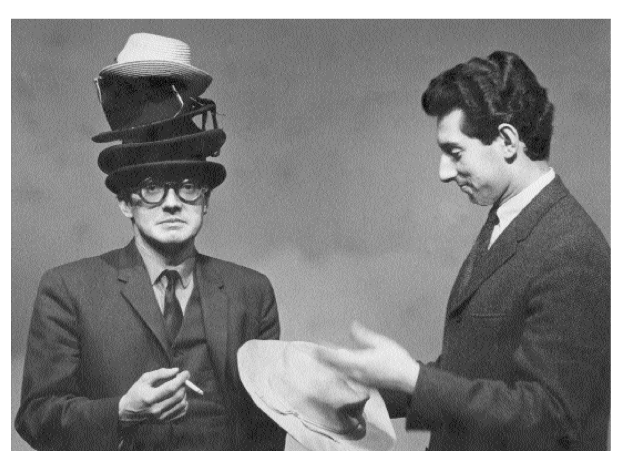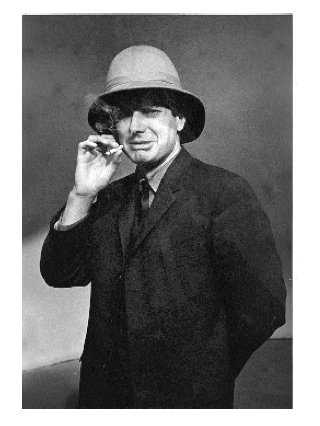“Fiction is a bridge to the truth that journalism can’t reach.”
—Hunter S. Thompson
1.
I met Second City comedy legend Del Close only once before he died. Close, with his white wizard’s beard and menacing baritone growl, held court at his usual table near the back of Chicago’s Old Towne Ale House. As he was famous for doing, Close entertained the grizzled regulars and his own tagalong admirers with outrageous stories from his past. Tonight he was “reminiscing” about his experiences in a traveling midnight spook show called “Dr. Dracula’s Den of Living Nightmares,” which he joined during the early ’50s while still in high school. His duties, he said, involved running through the pitch-black theater and tossing handfuls of cooked spaghetti onto the unsuspecting audience while calling out, “A plague of worms shall descend upon you!” Several audience members fainted, and at least one, he told us with maniacal glee, “shat himself.”
Then he described the spook show’s brief stay in Wichita, Kansas. It was in Wichita, he said, that he visited the Dianetics Institute for a personal auditing session with founder L. Ron Hubbard, who at the time was still known primarily as a science-fiction author. Close was a fan of Hubbard’s novels, and the two men formed a fast friendship.

At some point during their meeting, Hubbard admitted to Close that he wasn’t sure how much longer he could keep his Dianetics operation afloat, as he was barely able to afford the property taxes.
“Well,” Close purportedly told him, “if you’re worried about taxes, you should just turn Scientology into a religion.”
The small crowd burst into laughter, though most of them had heard this particular anecdote dozens of times before. Later I grilled Close for more details. Surely his anecdote was an exaggeration at best, a tall tale at worst, but in either case not meant to be taken literally. He stroked his beard and smiled at me, amused by my interrogation.
“Just because it didn’t happen,” he finally said, casually lighting up yet another cigarette, “doesn’t mean it isn’t true.”
2.
Bill Murray once called Del Close “the most famous man in comedy that nobody has ever heard of.” Although he remains largely unknown to mainstream audiences, Close is widely considered to be one of the most influential figures in the history of American comedy. During his forty-year career, he was present in the early periods of both the Second City and the Committee, where he single-handedly transformed improvisation into a valid art form. He discovered and nurtured generations of comedians, like John Belushi, Chris Farley, Amy Poehler,...
You have reached your article limit
Sign up for a digital subscription and continue reading all new issues, plus our entire archives, for just $1.50/month.
Already a subscriber? Sign in





